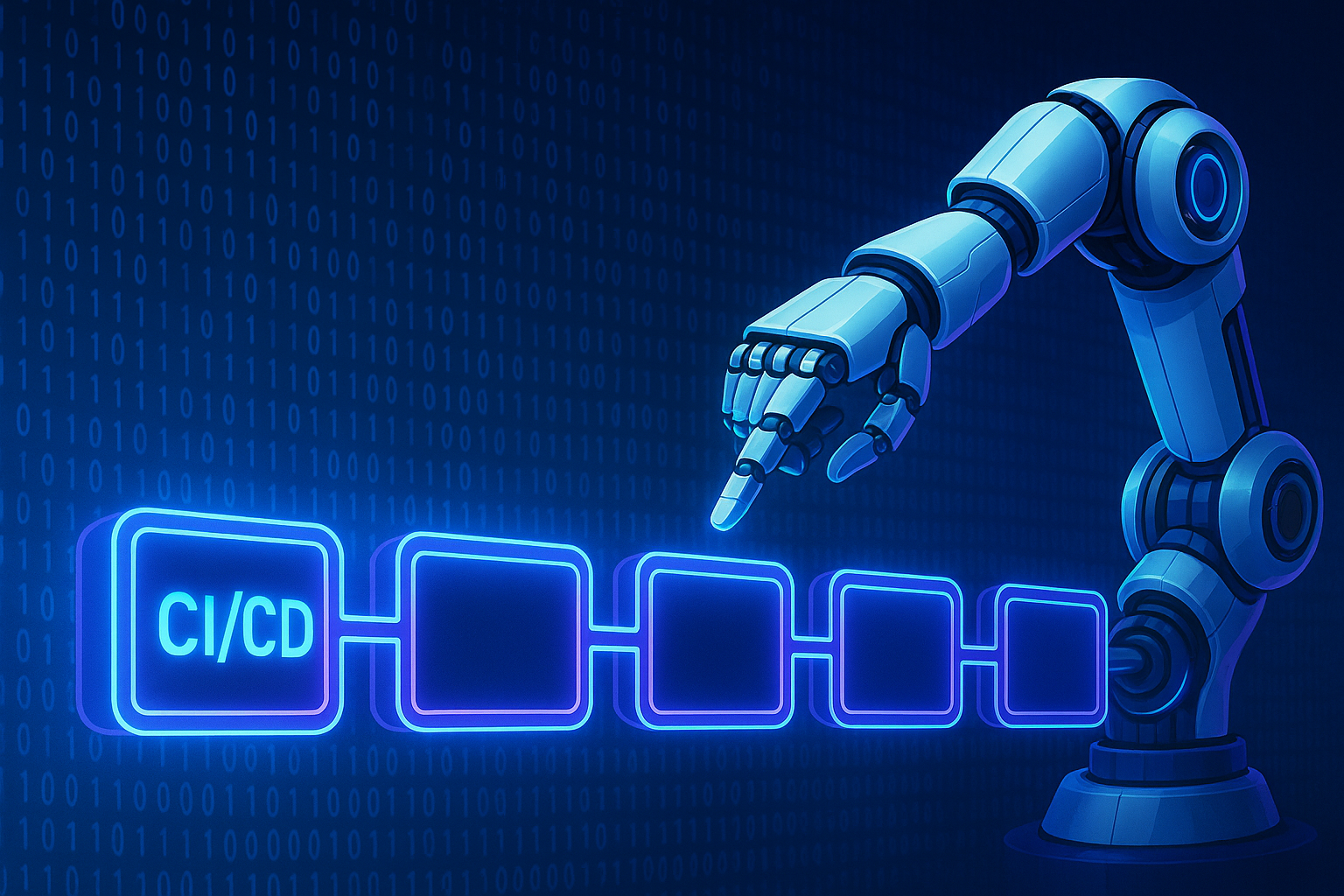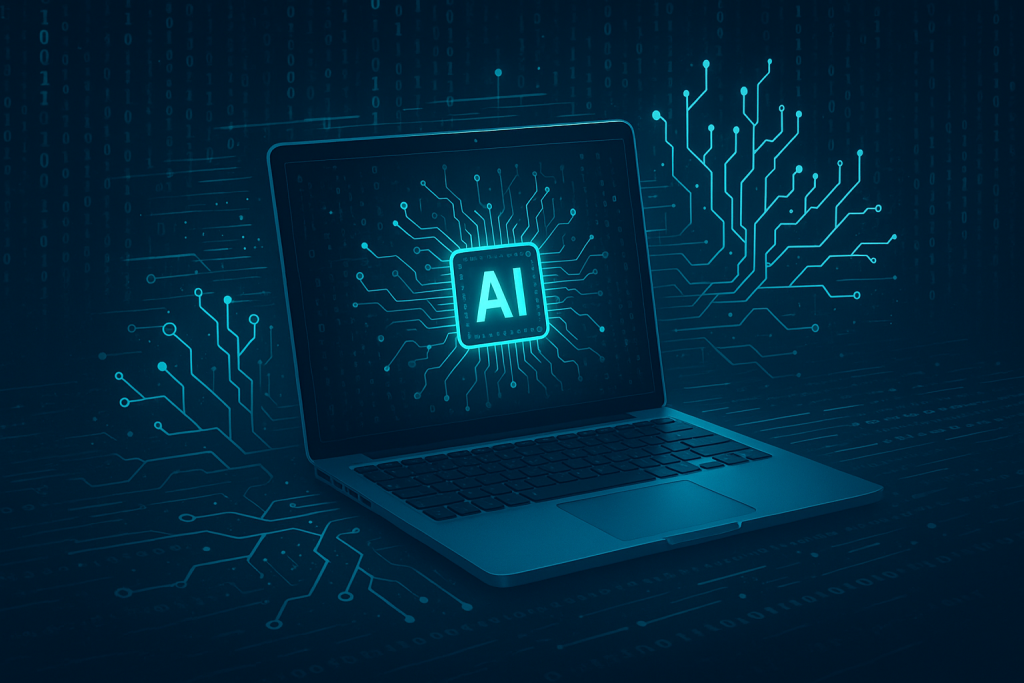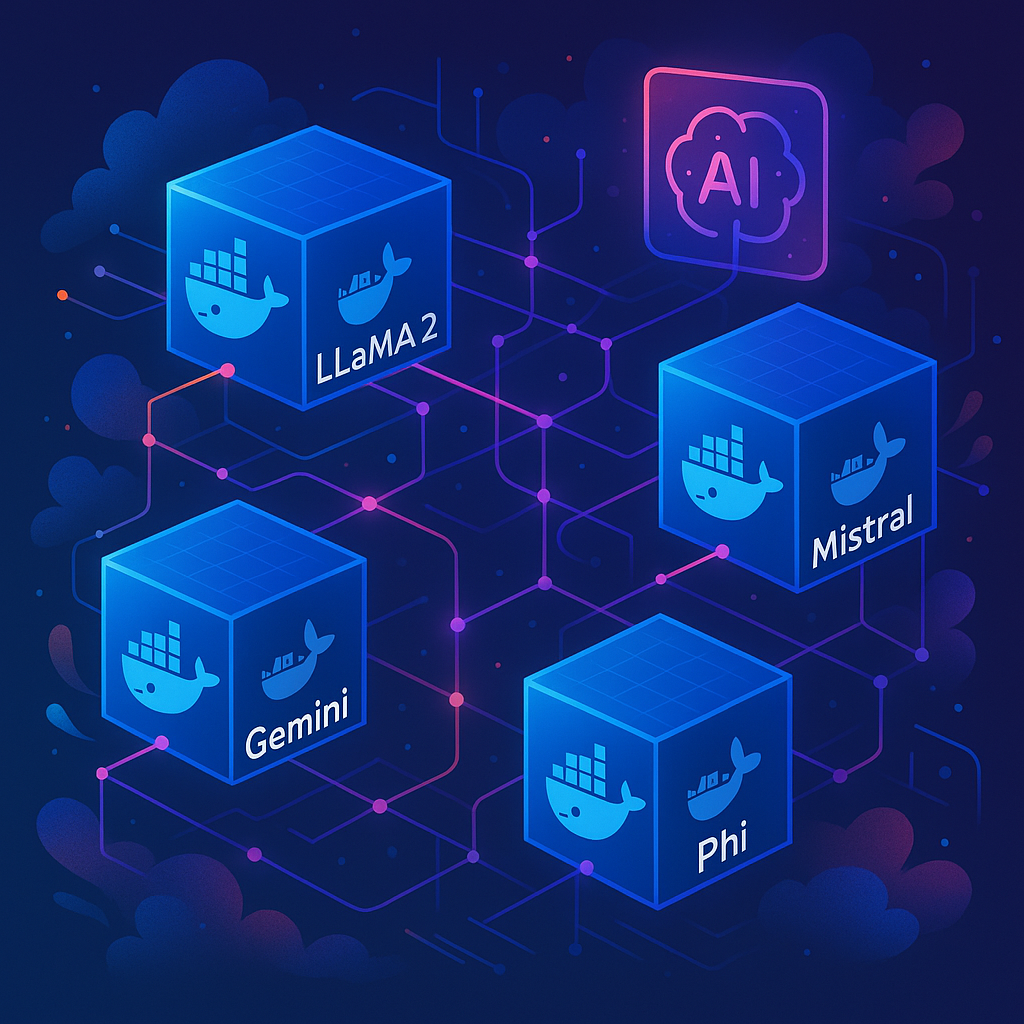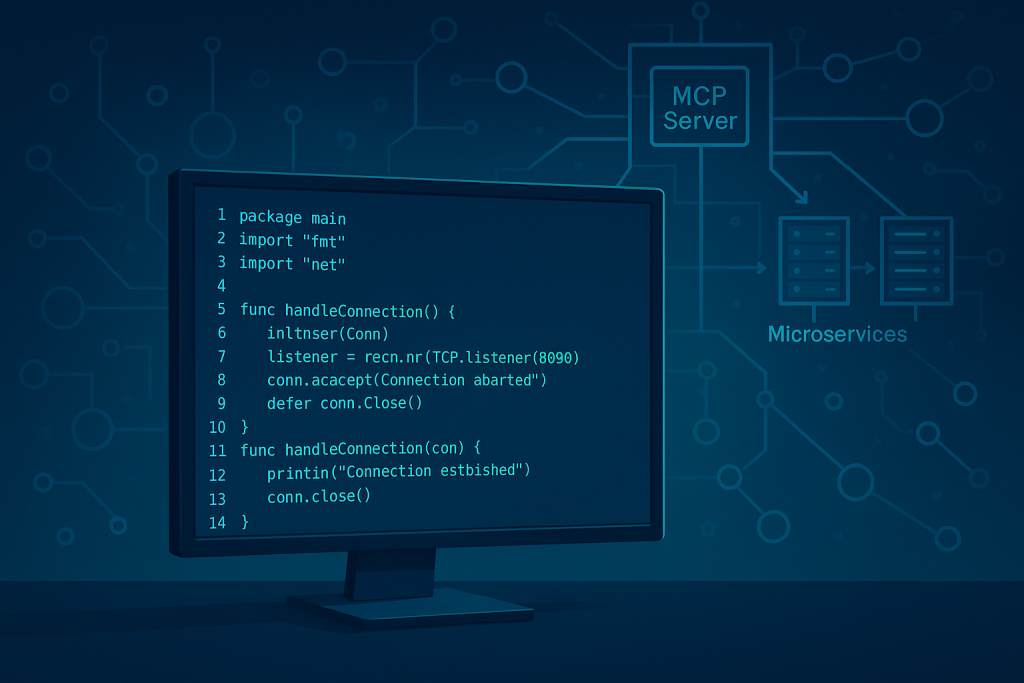Introduction to Agentic AI and DevOps
In today’s fast-paced digital environment, organizations are under constant pressure to innovate and deploy software rapidly. This challenge has led to the rise of Agentic DevOps, where intelligent, autonomous agents transform traditional DevOps practices. Integrating Agentic AI into DevOps environments is revolutionizing Continuous Integration and Continuous Deployment (CI/CD) pipelines by automating repetitive tasks, reducing manual intervention, and significantly enhancing deployment reliability. In this blog post, we will explore how automating CI/CD with Agentic AI not only streamlines development pipelines but also creates a resilient and self-healing ecosystem capable of managing dynamic, evolving workloads.
Understanding CI/CD Automation: Current Challenges
Continuous Integration and Continuous Deployment are critical components of modern software development. However, many organizations still struggle with several challenges:
- Manual Interventions: Despite automation efforts, manual steps often remain in the pipeline, slowing down the release cycle and increasing the risk of human error.
- Build Failures and Downtime: Predicting and mitigating build failures can be difficult, often leading to prolonged downtimes that impact business operations.
- Resource Optimization: Efficient allocation and scaling of resources is a recurring challenge, particularly in environments with fluctuating workloads.
- Security and Compliance: Ensuring that deployments remain secure while meeting compliance standards can add a substantial burden on team resources.
These challenges underscore the need for an intelligent, autonomous approach. The integration of AI within CI/CD pipelines addresses these pain points, ensuring that processes are more efficient, proactive, and secure. For a deeper dive into setting up effective CI/CD pipelines, refer to our guide on Implementing Continuous Integration and Deployment Pipelines for Microservices.
The Role of Agentic AI in Automating CI/CD Pipelines
Agentic AI plays a transformative role in automating CI/CD pipelines. By leveraging machine learning and data analytics, these systems manage and optimize various components of the software delivery cycle autonomously. One notable function is predictive build optimization. AI systems analyze historical build data to forecast potential failures with high accuracy, enabling teams to address issues before they cascade into larger problems. This is supported by research, which demonstrates that supervised learning algorithms can predict build failures, leading to reduced downtime and faster deployments (ResearchGate).
Another critical capability of Agentic AI is the implementation of self-healing mechanisms. These autonomous agents continuously monitor pipeline performance in real-time, detecting anomalies such as increased failure rates or slow deployment times. Upon identifying potential issues, they automatically initiate corrective actions, like restarting failed services or adjusting deployment parameters. This degree of automation not only enhances the reliability of deployments but also allows DevOps teams to focus on more strategic activities. Additionally, understanding how to build AI Agents can further empower your DevOps strategies.
Benefits of Integrating AI into DevOps Processes
The integration of Agentic AI into DevOps offers numerous benefits that extend across operational efficiency, cost savings, and enhanced security:
- Increased Efficiency: Automating routine tasks reduces cycle times, allowing faster and more reliable software deployments.
- Cost Reduction: By predicting failures and optimizing resource utilization, AI helps reduce unnecessary expenditures and minimizes downtime-related costs.
- Enhanced Security: AI systems can proactively scan for vulnerabilities, automatically applying patches and security measures to prevent potential breaches. For instance, upon detecting a security anomaly, an AI agent can trigger a rolling update in systems such as Kubernetes, ensuring that mitigations are promptly applied (MyKubert).
- Autonomous Decision Making: With predictive analytics and self-healing capabilities, Agentic AI reduces the reliance on manual oversight, leading to more consistent and error-free operations.
These benefits underscore how automating CI/CD with Agentic AI is not just about reducing human involvement, but about fundamentally transforming DevOps into a more agile, resilient, and efficient discipline.
Case Studies: Successful Implementations of AI in CI/CD
The real-world impact of Agentic AI in DevOps can be seen through its successful deployment in several prominent organizations:
Netflix
Netflix has integrated AI-driven tools to optimize its deployment pipeline. By leveraging machine learning algorithms, the company can predict potential failures and automate rollback processes. This proactive approach has led to reduced deployment times and increased overall reliability (Vegastack).
Facebook utilizes an AI tool known as Sapienz to automate test generation and prioritization. By analyzing code changes in conjunction with historical test data, Sapienz dramatically improves the effectiveness of testing processes. This innovation has resulted in faster deployments and higher quality releases (Vegastack).
LinkedIn has adopted AI to enhance both build and deployment efficiency within its CI/CD pipeline. The application of AI-driven analytics to predict resource requirements and optimize infrastructure allocation has not only reduced build times but also resulted in significant cost savings (Vegastack).
Implementation Challenges Teams Are Facing
While the benefits of integrating Agentic AI in DevOps are compelling, several challenges and considerations must be addressed to ensure successful implementation:
- Accountability in Production: A major cultural hurdle is who is accountable if an AI rolls back production or deploys a change that causes downtime. Teams are addressing this by requiring human approval for high-risk actions while allowing AI to automate low-stakes steps. (Medium).
- Data Bias and Integrity: AI models depend heavily on the quality of data. Biased or incomplete data sets can inadvertently lead to errors in prediction and optimization. Continuous monitoring and periodic retraining of models are fundamental to maintaining accuracy (Medium).
- Integration Complexity: Plugging AI into Jenkins, GitLab, or legacy systems isn’t easy. Engineers report needing custom connectors and facing significant setup times. Most successful adoptions start small, such as with AI-assisted test case generation, and expand gradually.
- Data Privacy Concerns: Teams hesitate to feed proprietary code into cloud-based AI. On Reddit, many DevOps engineers admit they use ChatGPT for personal Stack Overflow tasks but never with confidential code. Local or self-hosted AI solutions are increasingly in demand.
- AI Hallucinations: LLMs occasionally generate incorrect scripts, invalid configs, or security vulnerabilities. Studies have found that nearly half of AI-generated code snippets contain at least one flaw. This makes human review and automated testing essential before deploying AI outputs.
Addressing these challenges is essential for any organization looking to transition towards a more autonomous, efficient CI/CD process with Agentic AI.
Emerging Tools and Frameworks
Agentic AI in DevOps is being shaped by both startups and established platforms:
- GitLab Duo AI Agent – Assists in reviewing code, proposing CI/CD job optimizations, and even generating merge requests with AI-based reasoning.
- env0’s Cloud Analyst – An AI agent that monitors Terraform deployments, detects drift, and explains cloud resource issues in plain English.
- AI Testing Tools (Diffblue, etc.) – Generate unit tests autonomously, often boosting coverage significantly and freeing QA engineers from repetitive tasks.
- ChatOps AI Bots – Teams are wiring LLM-powered assistants into Slack/Teams to answer DevOps FAQs (“Why did this build fail?”) or trigger safe commands.
Community Concerns and Debates
The developer community is actively debating the risks of agentic AI:
- Security Risks – AI agents can be tricked by prompt-injection attacks into introducing malicious code into pipelines. The recommended safeguards include sandboxing AI actions, limiting privileges, and logging every AI decision.
- Job Evolution – While some fear job losses, most agree the role of DevOps engineer is shifting toward “AI orchestration” — supervising, auditing, and guiding AI-driven workflows.
- Trust and Explainability – Engineers are reluctant to trust opaque decisions. Early adopters run AI in “advisory mode” first (suggest actions only) before granting autonomy. Clear explanations of AI recommendations are becoming an adoption requirement.
- Compliance & Ethics – Regulated industries require audit trails for every change. Agentic AI must log not only what it did, but why, to satisfy compliance checks.
Future Trends: The Evolving Landscape of AI in DevOps
Looking ahead, the integration of AI in DevOps is poised for further evolution. Emerging trends include:
- Deeper Integration with Container Orchestration: As container technologies like Kubernetes continue to dominate deployment strategies, AI integration will further automate resource scaling and management.
- Enhanced Security Automation: Future AI systems will incorporate more advanced security measures, automating not just patching but also comprehensive threat detection and response systems.
- Real-Time Analytics and Feedback Loops: With improvements in real-time data analytics, future systems will provide continuous feedback and rapid adjustments, minimizing downtime and further optimizing performance.
These trends point to a future where Agentic AI and DevOps work hand-in-hand to deliver software faster, more reliably, and with enhanced security. For insights into how generative and agentic AI can be integrated into software engineering, check out our post on Bridging the Gap: Integrating Generative and Agentic AI in Software Engineering.
Best Practices for Getting Started
If you’re looking to experiment with agentic AI in CI/CD, start with a step-by-step approach:
- Identify Pain Points – Focus on areas like slow test cycles, error-prone deployments, or noisy log monitoring.
- Start Small – Pilot AI in one CI/CD stage, such as test selection or anomaly detection.
- Keep Humans in the Loop – Use AI as an advisor or junior engineer, with senior engineers approving critical changes.
- Prioritize Security – Apply least-privilege principles and sandbox environments for AI actions.
- Iterate and Expand – Once confidence is built, extend AI assistance across more pipeline stages.
FAQ: Frequently Asked Questions about Agentic DevOps and Automating CI/CD
What exactly is agentic AI in DevOps?
Unlike traditional automation scripts, agentic AI acts as an independent agent that can set goals, observe results, and change actions. In CI/CD, this means AI can do more than just trigger builds. It can examine failures, rerun tests with adjusted parameters, or suggest code rollbacks without needing human input.
How does AI enhance CI/CD pipelines?
By analyzing historical data and monitoring real-time performance, AI can predict build failures, optimize resource utilization, and even self-heal by automatically rectifying detected issues. This leads to faster deployments and more reliable software delivery.
Will agentic AI replace DevOps engineers?
This question often appears in forums and community discussions. Most people agree that AI enhances but does not replace. AI agents manage repetitive, data-heavy tasks like log analysis, anomaly detection, and test selection. Meanwhile, engineers offer oversight, creativity, and critical decision-making. The DevOps role is changing, not going away.
What are the security implications of integrating AI into CI/CD?
AI can enhance security by continuously scanning for vulnerabilities and applying automated patches. However, it is crucial to combine these automated measures with robust security policies and human review to mitigate potential risks.
What are the top tools right now?
Engineers are looking into GitHub Copilot, GitLab Duo AI, Amazon CodeWhisperer, and env0’s Cloud Analyst. These AI tools write pipeline code, create unit tests automatically, provide insights on infrastructure, and suggest changes for merge requests.
Conclusion: The Road Ahead for AI and DevOps Automation
Agentic AI is moving DevOps beyond traditional automation to self-managing pipelines. However, adoption needs careful consideration. Teams must tackle data privacy, reliability, and governance. By starting small, maintaining oversight, and using AI responsibly, organizations can achieve faster, more reliable, and more resilient CI/CD pipelines without losing safety or trust.
Looking forward, as technologies evolve and AI models become more sophisticated, we can expect even greater advancements in automated DevOps practices. For companies aiming to stay at the forefront of innovation, embracing these changes and integrating AI into their CI/CD processes is not only an option but a necessity in maintaining competitive advantage in the digital era.



